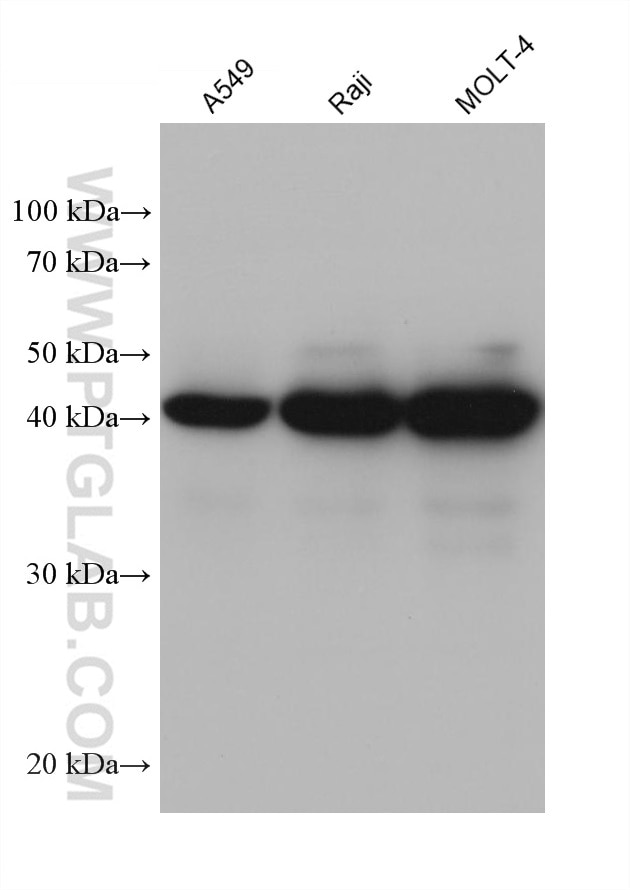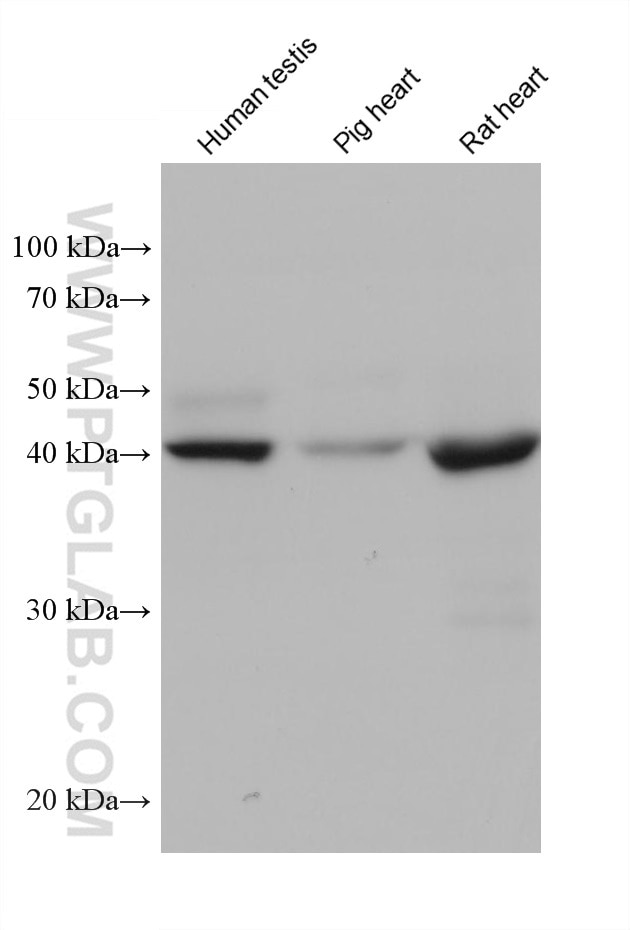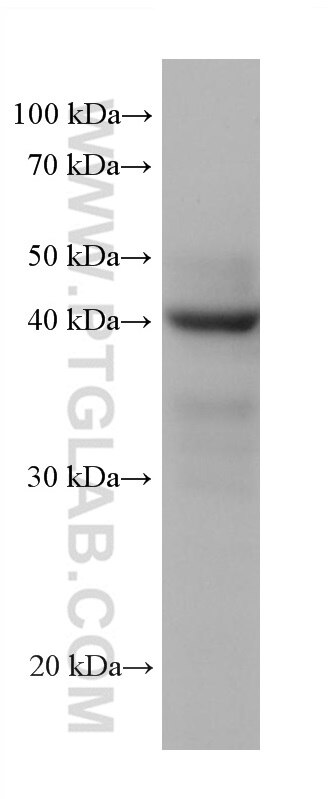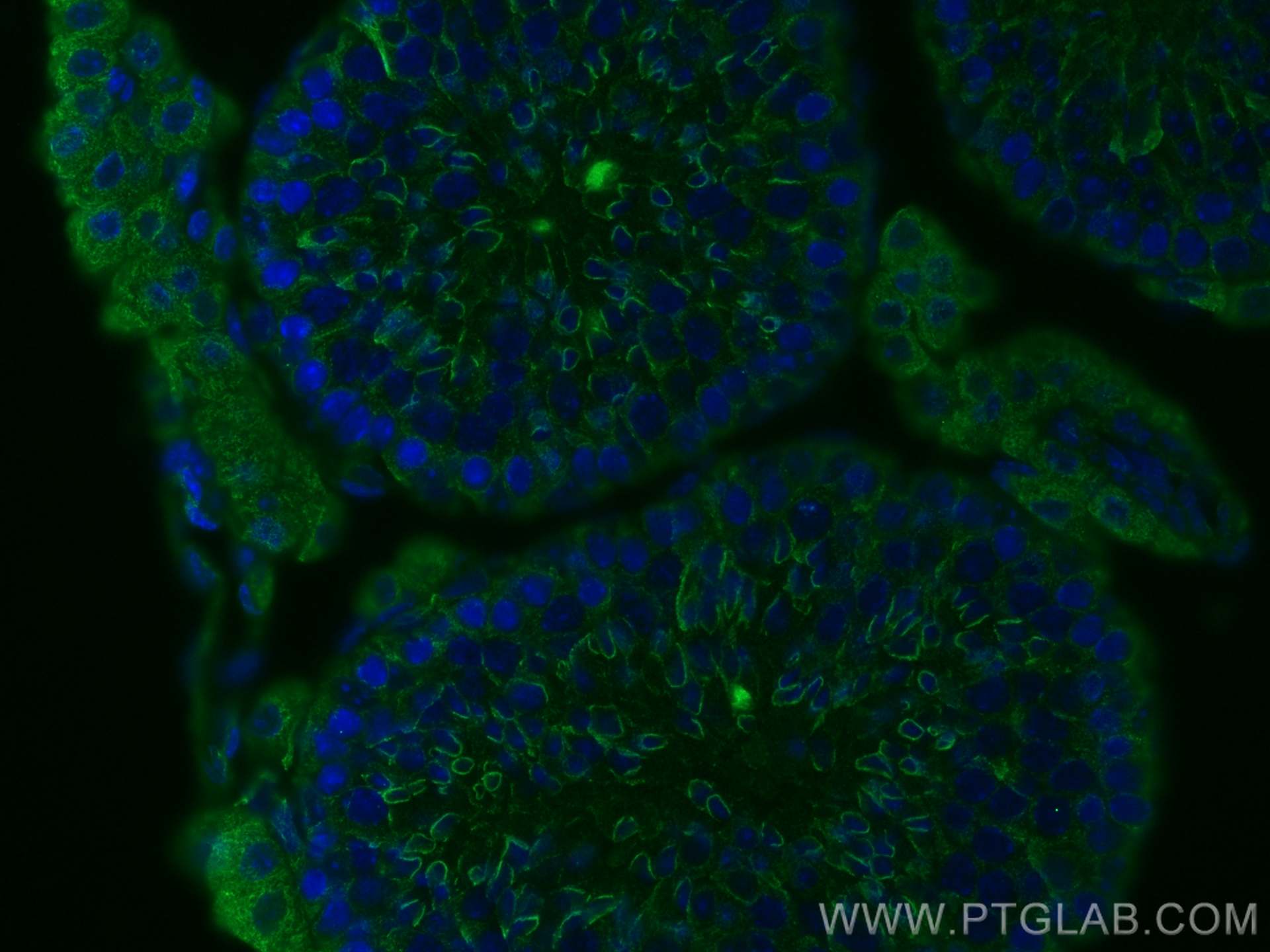PGK2 Monoclonal antibody
PGK2 Monoclonal Antibody for WB, IF, FC, ELISA
Host / Isotype
Mouse / IgG1
Reactivity
Human, Rat, Pig, Mouse
Applications
WB, IF, FC, ELISA
Conjugate
Unconjugated
CloneNo.
3D4F2
Cat no : 68228-1-Ig
Synonyms
Validation Data Gallery
Tested Applications
| Positive WB detected in | A549 cells, human testis tissue, HuH-7 cells, Raji cells, MOLT-4 cells, pig heart tissue, rat heart tissue |
| Positive IF detected in | mouse testis tissue |
| Positive FC detected in | A549 cells |
Recommended dilution
| Application | Dilution |
|---|---|
| Western Blot (WB) | WB : 1:2000-1:10000 |
| Immunofluorescence (IF) | IF : 1:250-1:1000 |
| Flow Cytometry (FC) | FC : 0.40 ug per 10^6 cells in a 100 µl suspension |
| Sample-dependent, check data in validation data gallery | |
Product Information
68228-1-Ig targets PGK2 in WB, IF, FC, ELISA applications and shows reactivity with Human, Rat, Pig, Mouse samples.
| Tested Reactivity | Human, Rat, Pig, Mouse |
| Host / Isotype | Mouse / IgG1 |
| Class | Monoclonal |
| Type | Antibody |
| Immunogen | PGK2 fusion protein Ag20631 相同性解析による交差性が予測される生物種 |
| Full Name | phosphoglycerate kinase 2 |
| Calculated molecular weight | 417 aa, 45 kDa |
| Observed molecular weight | 45 kDa |
| GenBank accession number | BC038843 |
| Gene symbol | PGK2 |
| Gene ID (NCBI) | 5232 |
| Conjugate | Unconjugated |
| Form | Liquid |
| Purification Method | Protein G purification |
| Storage Buffer | PBS with 0.02% sodium azide and 50% glycerol pH 7.3. |
| Storage Conditions | Store at -20°C. Stable for one year after shipment. Aliquoting is unnecessary for -20oC storage. |
Background Information
PGK2, phosphoglycerate kinase 2, which belongs to the phosphoglycerate kinase superfamily. It catalyzes the first ATP-generating step in the central metabolic pathway of glycolysis, converting 1,3-bisphosphoglycerate and ADP to 3-phosphoglycerate and ATP.
Protocols
| Product Specific Protocols | |
|---|---|
| WB protocol for PGK2 antibody 68228-1-Ig | Download protocol |
| IF protocol for PGK2 antibody 68228-1-Ig | Download protocol |
| FC protocol for PGK2 antibody 68228-1-Ig | Download protocol |
| Standard Protocols | |
|---|---|
| Click here to view our Standard Protocols |






